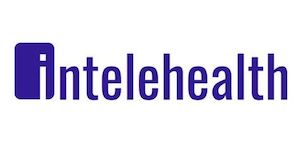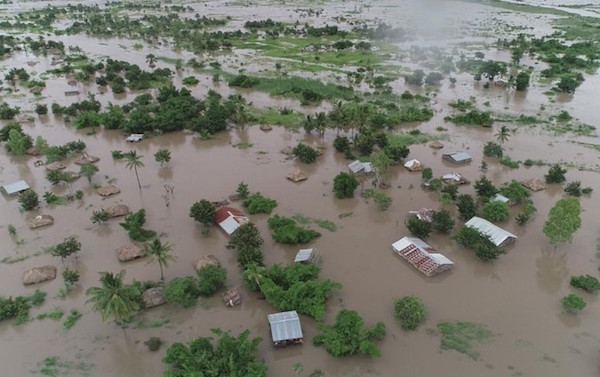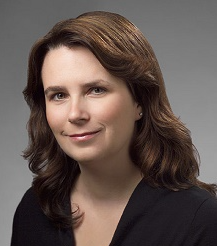United Nations
See the following -
Advancing 'Health for All' through Telemedicine: Intelehealth joins Digital Public Goods Alliance
 Intelehealth was added to the Digital Public Goods Alliance DPG Registry last week. This underscores Intelehealth's commitment to developing and championing digital public goods that will help achieve 'Health for All' and contribute to the Sustainable Development Goals (SDGs). Intelehealth is a non-profit delivering high-quality healthcare for the last -mile population where there is no doctor through telemedicine. Using our open-source technology platform that's driven by an innovative digital health assistant, we connect patients and frontline health workers at the last mile with qualified doctors, diagnostics & medications.
Intelehealth was added to the Digital Public Goods Alliance DPG Registry last week. This underscores Intelehealth's commitment to developing and championing digital public goods that will help achieve 'Health for All' and contribute to the Sustainable Development Goals (SDGs). Intelehealth is a non-profit delivering high-quality healthcare for the last -mile population where there is no doctor through telemedicine. Using our open-source technology platform that's driven by an innovative digital health assistant, we connect patients and frontline health workers at the last mile with qualified doctors, diagnostics & medications.
- Login to post comments
Drug Resistance Grows Menacingly
Every five minutes a child in Southeast Asia dies from an infection caused by drug-resistant bacteria -- a situation that is likely to get worse. Anti-microbial resistance, which happens when micro-organisms become less susceptible to antibiotics, is making diseases more difficult to contain and harder to cure. Diseases we no longer fear, such as pneumonia and tuberculosis, are re-emerging as major killers, as the tools we use to fight them become less effective.
- Login to post comments
Education Management with Moodle: The Beginning, Middle, and Today
 Moodle is the de facto standard in open source learning management systems. It is described as "a learning platform designed to provide educators, administrators and learners with a single robust, secure and integrated system to create personalised learning environments." Plus, Moodle is free software, licensed under the GPL. Martin Dougiamas, Moodle's founder and lead developer, generously took time from his busy schedule to have a good, long talk with me about why he created it, where it is today, and what's next in open education. First let me give you a little background. I was introduced to Moodle in 2005 while visiting a public school district in Portland, Oregon, which was using Moodle as part of their instructional delivery...
Moodle is the de facto standard in open source learning management systems. It is described as "a learning platform designed to provide educators, administrators and learners with a single robust, secure and integrated system to create personalised learning environments." Plus, Moodle is free software, licensed under the GPL. Martin Dougiamas, Moodle's founder and lead developer, generously took time from his busy schedule to have a good, long talk with me about why he created it, where it is today, and what's next in open education. First let me give you a little background. I was introduced to Moodle in 2005 while visiting a public school district in Portland, Oregon, which was using Moodle as part of their instructional delivery...
- Login to post comments
Global Bio-Disaster Response Urgently Needed In Ebola Fight
World leaders are failing to address the worst ever Ebola epidemic, and states with biological-disaster response capacity, including civilian and military medical capability, must immediately dispatch assets and personnel to West Africa, the international medical humanitarian organization Médecins Sans Frontières (MSF) announced today in a special briefing at the United Nations organized by the office of the UN Secretary General and the World Health Organisation (WHO). Read More »
How Can Information and Communications Tech Help in Disaster Preparedness and Response?
 n the immediate aftermath of disasters, timely and effective information is critical for the decision-making process. Information and Communication Technologies (ICTs) play a significant role in mitigation, preparedness, response, and rehabilitation by facilitating the flow of vital information in a timely manner. To deliver and deploy telecommunications / information and communication resources (transportable, easy to deploy and reliable systems that are non-exclusive) in a timely manner in the event of disasters, the ITU has designed the ITU Framework for Cooperation in Emergencies (IFCE). Innovative technologies such as robotics, drone technology, GIS, and emerging technologies like artificial intelligence (AI), the Internet of Things (IoT), cloud computing and Big Data are transforming the complex process of disaster management.
n the immediate aftermath of disasters, timely and effective information is critical for the decision-making process. Information and Communication Technologies (ICTs) play a significant role in mitigation, preparedness, response, and rehabilitation by facilitating the flow of vital information in a timely manner. To deliver and deploy telecommunications / information and communication resources (transportable, easy to deploy and reliable systems that are non-exclusive) in a timely manner in the event of disasters, the ITU has designed the ITU Framework for Cooperation in Emergencies (IFCE). Innovative technologies such as robotics, drone technology, GIS, and emerging technologies like artificial intelligence (AI), the Internet of Things (IoT), cloud computing and Big Data are transforming the complex process of disaster management.
- Login to post comments
Open Medical Records Community Supports New System In Mozambique
 The southern African country of Mozambique suffers under the most extreme challenges for resource-poor countries: economic instability, political strife, civil unrest, corruption and crime, unreliable infrastructure (such as transportation and telecommunications), and a large-scale HIV epidemic that has yet to be declared under control...The nation has enormous need and opportunity for improving its healthcare system and the lives of its residents. In the face of their crisis, Mozambique is working to equip its medical clinics across the nation with an electronic medical records system (EMR). Mozambique believes an EMR can empower clinicians to give high-quality and consistent care to those most in need, while allowing the country to reap the insights of comprehensive reporting for responsive public health decision making...
The southern African country of Mozambique suffers under the most extreme challenges for resource-poor countries: economic instability, political strife, civil unrest, corruption and crime, unreliable infrastructure (such as transportation and telecommunications), and a large-scale HIV epidemic that has yet to be declared under control...The nation has enormous need and opportunity for improving its healthcare system and the lives of its residents. In the face of their crisis, Mozambique is working to equip its medical clinics across the nation with an electronic medical records system (EMR). Mozambique believes an EMR can empower clinicians to give high-quality and consistent care to those most in need, while allowing the country to reap the insights of comprehensive reporting for responsive public health decision making...
- Login to post comments
OpenStreetMap Community Helps With Nepal Earthquake Response
 Since the devastating earthquake in Nepal, there have been responses from all over the world from relief agencies, governments, non-profits, and ordinary citizens. One interesting effort has been from the crowdsourced mapping community, especially on OpenStreetMap.org, a free and open web map of the world that anyone can edit (think the Wikipedia of maps.) Read More »
Since the devastating earthquake in Nepal, there have been responses from all over the world from relief agencies, governments, non-profits, and ordinary citizens. One interesting effort has been from the crowdsourced mapping community, especially on OpenStreetMap.org, a free and open web map of the world that anyone can edit (think the Wikipedia of maps.) Read More »
- Login to post comments
This $16 Water Filter Could Save 100,000 Lives a Year
An invention from a researcher in India is helping solve the South Asian nation's H2O-contamination problems. Sixteen dollars. That’s the price of a movie ticket plus tax in Los Angeles—or of a week’s worth of coffee at a trendy java shop. Thanks to an Indian chemist, that amount of cash could also provide clean water for a year to an impoverished family in the developing world. If this will be useful for water, it has to be very cheap, have a low carbon footprint, require no electricity, and should not contaminate water sources in the process,” Thalappil Pradeep, a chemistry professor at the Indian Institute of Technology, told TakePart...
- Login to post comments
TPP Treaty Could be a Serious Threat to US Public Health System
 While trade agreements may seem to be another, albeit international species of wonkery, these agreements could have major effects on patients' and the public's health. Since these concerns have been essentially ignored by the US medical and health care literature, (although they have appeared in UK journals, Australian, and New Zealand journals in English), they I will discuss them below. Worthy of further discussion is the possibility that these potential threats to health care and public health may arise not just from ideological disagreements, but also from health care corporations' increasing capture of government, facilitated by the conflicts of interest generated by the revolving door. Read More »
While trade agreements may seem to be another, albeit international species of wonkery, these agreements could have major effects on patients' and the public's health. Since these concerns have been essentially ignored by the US medical and health care literature, (although they have appeared in UK journals, Australian, and New Zealand journals in English), they I will discuss them below. Worthy of further discussion is the possibility that these potential threats to health care and public health may arise not just from ideological disagreements, but also from health care corporations' increasing capture of government, facilitated by the conflicts of interest generated by the revolving door. Read More »
- Login to post comments
When the United Nations Calls, MicroMappers Acts
 Open source and crowdsourcing—uttering these words at a meeting of the United Nations before the year 2010 would have made you persona non grata. In fact, the fastest way to discredit yourself at any humanitarian meeting just five years ago was to suggest the use of open source software and crowdsourcing in disaster response. Then, a tragic earthquake occured in Haiti in 2010, and OpenStreetMap and Ushahidi were deployed in the aftermath. Their use demonstrated the potential of free and open source crowdsourcing platforms in humanitarian contexts. Then, Typhoon Ruby in the Philippines occured five years later. What technology was used?...
Open source and crowdsourcing—uttering these words at a meeting of the United Nations before the year 2010 would have made you persona non grata. In fact, the fastest way to discredit yourself at any humanitarian meeting just five years ago was to suggest the use of open source software and crowdsourcing in disaster response. Then, a tragic earthquake occured in Haiti in 2010, and OpenStreetMap and Ushahidi were deployed in the aftermath. Their use demonstrated the potential of free and open source crowdsourcing platforms in humanitarian contexts. Then, Typhoon Ruby in the Philippines occured five years later. What technology was used?...
- Login to post comments
Working to Get the United Nations to Adopt Open Source Development Tools
Working at the bleeding edge of global development is about to get more lively. Akvo.org co-founder Mark Charmer argues the world needs the open source movement to assert itself right now.... Read More »
- Login to post comments